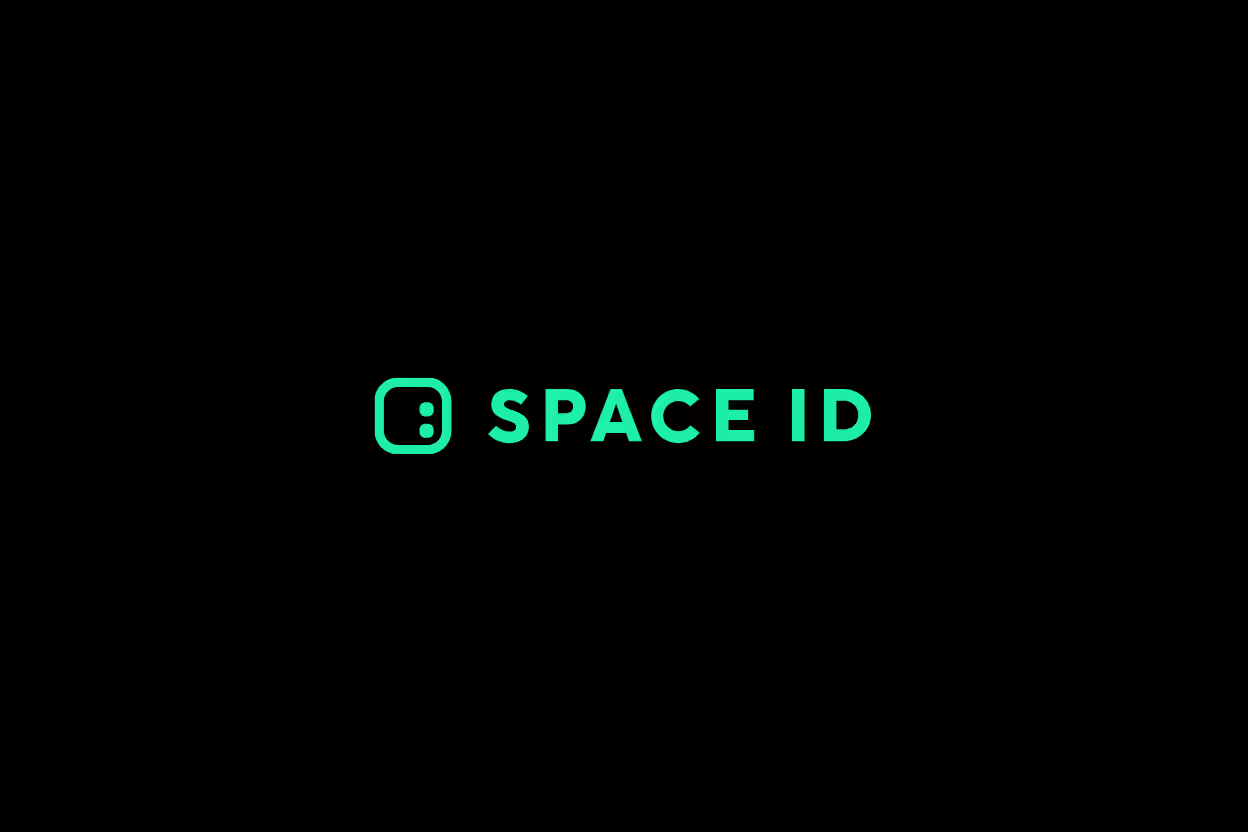Blockchains use long, complex addresses that can be hard to remember and prone to mistakes. Domain names like .bnb, .arb, and .eth on Space ID simplify this by turning those addresses into easy-to-read names. These domain extensions correspond to Binance Smart Chain, Arbitrum, and Ethereum networks, making it clear which blockchain they relate to.
Using these blockchain domains streamlines how founders and developers connect, send assets, and interact with decentralized applications. It reduces friction and builds trust in transactions by providing human-readable identifiers instead of long hexadecimal strings. This post will explain why these domains matter and how they fit into the blockchain ecosystem.
Understanding Blockchain Domain Names on Space ID
Space ID offers a fresh way to manage blockchain identities and domains by combining simplicity with broad network support. If you’ve struggled with complex wallet addresses or juggling multiple blockchain platforms, Space ID aims to bring everything into one clear system. It doesn’t just serve one blockchain but connects several, making it easier for users and developers to interact with different networks using recognizable, easy-to-remember names.
What Is Space ID?
Space ID is a decentralized identity and domain platform built to work across multiple blockchains. Unlike traditional domain name services tied to a single system, Space ID supports networks like Binance Smart Chain, Arbitrum, and Ethereum in one place. This multi-chain approach means users don’t have to switch platforms or tools when moving between blockchains.
By supporting multiple blockchains, Space ID improves convenience and flexibility. Developers can build applications that recognize unified domain names regardless of the underlying network. Users benefit by managing fewer identifiers and avoiding confusion caused by long, random, and complex wallet addresses. The platform maintains decentralization, ensuring that control over identities and domains remains with the users rather than centralized entities.
How Domain Names Work on Space ID
At its core, Space ID maps human-friendly domain names to blockchain addresses using smart contracts. Think of it as translating long, complicated wallet addresses into simple words you can type or remember easily, like your personal web address.
Every domain name on Space ID corresponds to a unique blockchain address, allowing users to send assets, access decentralized apps, or verify identities without the risk of errors common in manual input. When someone types a .bnb, .arb, or .eth domain into a wallet or app that recognizes Space ID, the system automatically resolves the domain to the correct address on that blockchain.
This address mapping is secured by blockchain technology itself, meaning the domain’s ownership and changes are recorded transparently and without a central authority. It boosts user experience by reducing friction—imagine sharing your domain name like a username instead of copying a complex code—and builds trust as these records are publicly verifiable on-chain.
The platform also supports cross-chain compatibility. This means you can hold a domain that works seamlessly across different blockchains you use, not just locked into one. This ease of use explains why domain names like .bnb for Binance Smart Chain and .eth for Ethereum are gaining popularity as straightforward digital identifiers.
By simplifying these key interactions, Space ID makes blockchain technology more approachable for everyone involved.
Detailed Overview of .bnb, .arb, and .eth Domains
There is a lot to unpack when it comes to .bnb, .arb, and .eth domains on Space ID. These domain extensions aren’t just random letters at the end of your blockchain name—they each link directly to specific networks, giving you a clear signal about where your assets and identities live. Understanding what each domain offers helps you see how they solve key problems around blockchain addresses and user experience.
.bnb Domain: Binance Smart Chain Identity
The .bnb domain serves as a human-friendly identity for users and developers on Binance Smart Chain (BSC). If you have interacted with BSC, you know wallet addresses can be long, cryptic, and prone to mistakes. The .bnb domain replaces these cumbersome strings with simple names that are easy to remember and share.
But why choose .bnb? It ties your identity directly to the Binance Smart Chain ecosystem, which means your wallet, DeFi accounts, and dApps on BSC become easier to access and trust. Instead of copying and pasting a 42-character address, you can use a clean domain like yourname.bnb to receive funds or log into applications.
For developers, integrating .bnb domains means fewer errors in transactions and a smoother onboarding process for new users. Wallets and applications that recognize .bnb reduce friction in sending tokens or interacting with smart contracts on BSC. Overall, it bolsters user confidence and simplifies blockchain navigation on one of the fastest-growing networks.
.arb Domain: Arbitrum Network Integration
The .arb domain is directly linked to Arbitrum, a Layer 2 scaling solution for Ethereum. Arbitrum aims to reduce congestion and high fees on Ethereum by handling transactions off the main chain while still benefiting from Ethereum’s security. The .arb domain reflects this by providing a clear identity anchored to Arbitrum’s network.
What sets .arb apart is how it improves efficiency in user identity and transactions specifically for Arbitrum users. When you use a .arb domain, your address resolves quickly on Layer 2, making sending funds or interacting with Arbitrum-based dApps simpler and faster than traditional Ethereum addresses. This reduces confusion around where your assets reside, ensuring you’re not accidentally sending tokens to a mainnet address instead of Arbitrum’s Layer 2.
This domain also helps developers clearly mark users and smart contracts operating on Arbitrum, improving the user experience and building trust within this expanding ecosystem. The .arb name makes scaling on Ethereum tangible and accessible.
.eth Domain: Ethereum Name Service (ENS) on Space ID
The .eth domain is the most established among these three, rooted in Ethereum’s Name Service (ENS). ENS revolutionized blockchain by turning long Ethereum addresses into readable domain names, becoming the standard for Ethereum wallets and dApps worldwide.
On Space ID, .eth domains receive dedicated support, integrating ENS functionality within a system that also embraces multi-chain identities like .bnb and .arb. This means users can manage their Ethereum-based domains alongside other blockchain identities all in one place.
With .eth domains, users enjoy broad compatibility across wallets, exchanges, and platforms. They offer trust and recognition, especially for founders and developers building on Ethereum, the largest smart contract platform. Space ID’s support for .eth domains ensures you’re not only managing your Ethereum address more cleanly but doing so in a way that works seamlessly alongside other networks.
What value does this integration add? It simplifies management for users juggling several blockchains and strengthens the connection between Ethereum’s mature ENS system and newer networks like BSC and Arbitrum. This unified approach makes it easier to interact cross-chain by using familiar, human-readable names.
With these distinct domains—.bnb for Binance Smart Chain, .arb for Arbitrum, and .eth for Ethereum—Space ID helps streamline how blockchain participants navigate their digital identities. Each domain reflects its network's unique characteristics and use cases, making blockchain interactions clearer and less error-prone. Understanding these differences sets the stage for leveraging them effectively in your projects or personal blockchain use.
Practical Benefits and Use Cases of .bnb, .arb, and .eth on Space ID
Using .bnb, .arb, and .eth domain names on Space ID offers real, hands-on benefits that go beyond simply replacing complex addresses. These domains solve everyday problems for users, founders, and developers by making blockchain interactions clearer, safer, and easier to manage. Let’s break down the main ways these domains improve how people work with blockchains and decentralized apps.
Simplifying Transactions and Addresses
Have you ever struggled to copy or share a wallet address without making a typo? Blockchain addresses are long strings of random letters and numbers that are hard to remember or communicate. That’s where readable domain names like .bnb, .arb, and .eth come in handy.
Instead of sharing 0x3c5b3...e6a0f, you can use a simple name like alice.bnb or bob.eth. This reduces mistakes during transfers, which means fewer lost funds or failed transactions. Wallets and dApps that integrate Space ID automatically convert these domain names back into the correct blockchain address behind the scenes, so you don’t have to think about it.
This practical swap from complicated codes to user-friendly names builds trust too. When you see a domain name you recognize, you feel more confident sending assets or interacting with smart contracts. In short, these domains make your blockchain wallet feel more like an email address or phone number — easy to remember and share without errors.
Enhancing Cross-Chain Identity Management
Do you manage addresses on multiple blockchains like Binance Smart Chain, Arbitrum, and Ethereum? Keeping track of several long addresses scattered across networks can be frustrating. Space ID’s support for .bnb, .arb, and .eth domains allows you to unify your blockchain identities in one place.
This multi-domain setup offers a practical way to manage your digital identity across chains. You get one clear username linked to several addresses, which simplifies how you receive payments, log into dApps, or prove ownership without juggling multiple accounts.
For founders and developers, this unified approach helps maintain a consistent identity for their projects or users, regardless of which chain they use. It also smooths communication across ecosystems—users know they are dealing with the same person or entity even if the network changes. This feature is particularly useful when building tools or communities that operate on more than one blockchain.
Facilitating Decentralized Applications (dApps) Development
Developers face challenges in creating dApps that offer a smooth user experience across different blockchains. Integrating .bnb, .arb, and .eth domains on Space ID enables the creation of user-friendly dApps that interact with multiple networks effortlessly.
Instead of requiring users to enter complex wallet addresses or understand network differences, dApps can simply ask for a domain name. This improves user onboarding and reduces support queries about sending funds to the wrong address or chain. Imagine a dApp that automatically knows where to route transactions when someone enters user.arb or project.eth.
This approach also encourages developers to build apps that support cross-chain functionality without extra complexity. It boosts interoperability and lets dApps tap into a wider audience by lowering technical barriers. In essence, the use of these domains within the Space ID ecosystem makes dApps more accessible and less error-prone.
By focusing on practical use cases, it’s clear how .bnb, .arb, and .eth domains on Space ID simplify wallet interactions, unify identities across chains, and empower developers to build better decentralized applications. These benefits improve the experience for everyone in the blockchain space, from founders to everyday users.
Challenges and Considerations When Using .bnb, .arb, and .eth on Space ID
While .bnb, .arb, and .eth domains on Space ID offer great convenience and usability, there are important challenges and factors to consider before fully embracing them. Knowing these will help you avoid common pitfalls and make informed decisions. Let’s explore key aspects around security, interoperability, and market trends that shape how these domains perform for users and developers.
Security and Privacy Considerations
Space ID relies on blockchain smart contracts for domain management, which provides transparency and tamper resistance. Ownership and updates of domains are recorded on-chain, minimizing chances of manipulation by third parties. Additionally, Space ID employs encryption and access controls to protect personal information linked with domain identities.
However, users should remain cautious. Here are some potential vulnerabilities:
- Phishing risks: Attackers may create lookalike domains or impersonate valid ones to trick users into sending funds to the wrong address.
- Domain squatting: Popular names could be registered by bad actors to extort or deceive users.
- Smart contract bugs: While audited, the underlying code could still contain vulnerabilities that expose domains to hijacking or loss.
- Privacy leaks: Public on-chain records mean ownership and transaction history can be traced, which might reveal more about user behavior than intended.
Knowing this, users should employ additional safeguards like checking domain authenticity carefully, using hardware wallets for domain management, and staying updated on platform security announcements.
Cross-Chain Compatibility Issues
Space ID supports multiple blockchains by linking domain names to different network addresses. In theory, this is powerful but in practice it isn’t without friction. Technical challenges include:
- Resolution delays: Each blockchain has different confirmation times, which can slow down domain resolution or transaction verification.
- Network forks or upgrades: Changes in one blockchain can temporarily break compatibility or cause domain mismatches.
- Limited wallet/app support: Not every wallet or dApp recognizes all Space ID domains equally across .bnb, .arb, and .eth, which can confuse users.
- Complex user interfaces: Managing domains that span several chains requires advanced tools and clear UI design to prevent mistakes.
Such challenges highlight that cross-chain interoperability is still evolving. Developers and users must test domain functionality thoroughly before relying on them for critical operations. Smooth experiences depend on ongoing updates to both the Space ID platform and the networks it interacts with.
Adoption and Market Acceptance
Adoption is a mix of user demand, ecosystem support, and developer engagement. For .eth (ENS), the market is mature with broad recognition and high demand within the Ethereum community. .bnb and .arb domains are newer but growing steadily alongside their blockchains’ rapid expansion.
Current trends show:
- Increasing interest from DeFi and NFT projects integrating these domains for identity simplification.
- More wallets and exchanges beginning to support Space ID’s multi-chain domains.
- Rising awareness among founders and developers who value unified identity management over juggling multiple addresses.
Despite this, market acceptance still faces hurdles such as educating users on domain meaning, overcoming interoperability limits, and competing with other naming services.
Looking ahead, wider adoption depends on:
- Continued improvements to user experience and security.
- More tools that make domain use intuitive across chains.
- Stronger partnerships within blockchain ecosystems to promote standards.
Understanding these dynamics helps you weigh the benefits versus the current limitations when choosing to use .bnb, .arb, and .eth domains on Space ID. Being informed means better risk management and smarter integration into your projects.
By keeping these challenges in mind, you can better navigate the complexities and harness the potential offered by blockchain domain names.
Conclusion
Space ID’s .bnb, .arb, and .eth domains bring clear value by simplifying blockchain addresses and linking identities to Binance Smart Chain, Arbitrum, and Ethereum networks. For founders and developers, these domains reduce errors, improve user onboarding, and offer a unified way to manage digital identities across multiple blockchains.
Adopting these domain names helps build trust with readable, network-specific identifiers, while supporting cross-chain operations and smoother dApp interactions. As Space ID continues to expand its features and community governance, integrating these domains can future-proof your projects and strengthen connections within the decentralized ecosystem.
Consider exploring Space ID’s ongoing developments and connecting with communities that support multi-chain domains to stay ahead. How will these domain types impact your next blockchain venture or user experience? The answer lies in their ability to turn complex blockchain data into accessible, reliable identities for Web3 users.






